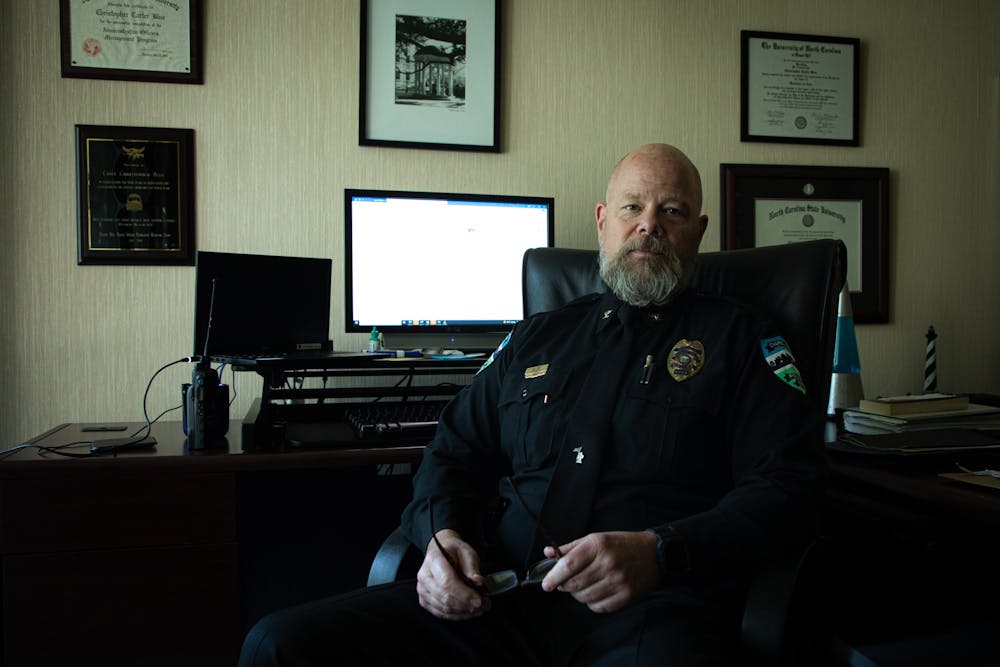On June 6, Chapel Hill Police Chief and Executive Director for Community Safety Chris Blue announced that he will retire on Dec. 31, 2022. Summer City & State Editor Sarah Choi spoke with Blue about his 25-year career with the Chapel Hill Police Department. Blue began serving as a patrol officer in November 1997 and was appointed chief of police in December 2010.
This interview has been edited for brevity and clarity.
The Daily Tar Heel: When did you first know that you wanted to be a police officer?
Chris Blue: A friend of mine and I were working together in a restaurant over in Durham, and both of us had fairly recently graduated from college and were still trying to figure out what we were going to do with ourselves. One day we just met with each other and said, "you know, we could try being police officers," and we applied the next day. He actually got hired right away. I didn't get hired right away. It took me another year and a half or so, two years really, to get hired. We both applied in Chapel Hill, and all these years later, here we are. He just retired about this time last year, and I'm retiring end of this year, so the moral of the story is you never know where your life is going to take you. I entered into it on a whim, almost. Turned out to be a fantastic career.
DTH: Did you know that you wanted to be the police chief from the beginning?
CB: No, absolutely not. I loved being a patrol officer and really thought that would be a dream job for me for my entire career. While I was out as a patrol officer, I enjoyed interacting with the community – solving problems. When people call 911, we hope that's what we're able to help them do. But, after you do the job for a couple of years, you realize "I might be able to provide a little leadership," or influence things a little bit more if I moved into a supervisory position. Before you know it, you find your way moving up the ladder, and I've been very, very fortunate.
DTH: How do you think you influenced the police force during your time with them?
CB: This is a special department. It's always been a little ahead of the curve in terms of innovations and policing practices and policies. Long before I got here, that was station culture. What I would say is that this is my hometown. I think I brought to the organization, because of my strong connection to Chapel Hill, a real focus on community engagement and communication and transparency trying very hard to meet the interests of this specific community.
DTH: What were some of the biggest investigations or cases you worked on during your time with the police force?



